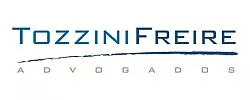A Federal Decree published on March 19, 2015, regulates the
Brazilian law of 2013 known as the "Clean Companies Act".
The new decree establishes, among others, the parameters for
assessing the adequacy of compliance programs, the criteria for
calculating the fines that may be imposed on companies, and the
rules to be followed in the negotiation and execution of leniency
agreements.
According to the Clean Companies Act, legal entities may be fined
from 0.1% to 20% of gross revenues for actions such as bribing
national or foreign officials, or engaging in fraud during public
procurement procedures. The new decree establishes the criteria and
percentages for increasing or decreasing the fine within the limits
set by the law.
With respect to compliance programs, which the Clean Companies Act include as an important mitigating factor in the imposition of fines, the decree indicates the parameters of an adequate "integrity program", namely: commitment from top management; implementation of standards of conduct, code of ethics, policies and procedures for integrity; periodic risk assessment involving the activity of the company; existence of channels for reporting irregularities, open and widely disseminated to employees and third parties; third party due diligence; due diligence in mergers, acquisitions and corporate restructurings, for assessing irregularities or illegal acts committed or the existence of vulnerabilities in the legal entities involved; among others.
The decree also states that leniency agreements may be negotiated and executed not only in connection with violations of the Clean Company Act, but also with respect to administrative offenses established by the Public Procurement Act of 1993 and other rules involving public bids and contracts.
The content of this article is intended to provide a general guide to the subject matter. Specialist advice should be sought about your specific circumstances.


